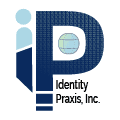What’s your data worth? Coffee & Croissant? How about a Job?
The article was published on American Marketer on May 14, 2019.
Launched in 2013 Shiru Cafe has created a new way to connect students and prospective employers.
Cash Not Accepted Here; Turning Data Into Currency
At Shiru Cafe students get their coffee and beverages, study space, career information, and a place to hold meetups and network in exchange for their data. You got it, they pay with their personal information, including their
- Name
- University ID number
- Phone number
- Majors and concentrations
- Dates of birth
- Professional interests
- and more
Who Is Paying For The Coffee?
Corporate sponsors and partners looking to get in touch with the students are paying.
Shiru Cafe shares anonymized Student data with sponsoring companies and partners, including Kikkoman, PWC, BASF, JP Morgan, Mitsubishi, White Heron, Pain D’Avignon, and others.
Sponsors and partners use Shiru Cafe to connect with the students, to get to know them and to speed up and personalize recruiting efforts. Sponsors and partners also leverage the cafe to organize meet-ups, events, and interviews with students, and market to students through the cafe’s coffee shops and mobile app.
Shiru Cafe has published an eBook on Gen Z recruiting (Gen Z are those born between 1997 and 2010), download it here (Strobing et al. 2019).
The eBook includes three chapters and a conclusion.
- Chapter 1 – Understanding your audience
- Chapter 2 – Communicating effectively
- Chapter 3- The importance of connection
- Conclusion – Something’s Got to Change
The key insights you’ll find in the eBook are that Gen Z are a differentiated group with a wide range of interests. They are focussed, they care deeply about a company’s mission, are interested in social justice, intangibles, as well as their career path.
For Gen Z a lack of activity and not knowing is what drives their stress.
What Can Organizations Do To Engage Gen Z?
Shiru Cafe reminds us,
Ultimately, the people in an organization are what determines its long term success…If you are looking to meet people with lots of potential in your organization, you need to meet people with lots of potential – not resumes with “lots of potential.”
Shiru Cafe (Strobing et al. 2019)
According to Shiru Cafe, Gen Z does not know who most brands are. Organizations need to build their brand, brand awareness and effectively communicate with Gen Z to successfully serve them.
Keys to building brand with students include
- Speaking clearly
- Being responsive
- Articulating your mission (what problems are you solving)
- Providing structure
- Getting to know them, not just their resume
- Being professional
Is It Working?
I was unable to find much detail on how well the cafe is doing.
On the commercial front, as of April 27, 2018, they have 25 locations– 17 in Japan, 3 in the United States (with the latest opening May 2019), and 5 in India–so something must be working.
However, is it really working? I don’t know.
Are students happy with the exchange? Are they getting equitable value in return for their most precious asset, their data? One article I read about them shares that student response is mixed (Frankel 2018).
Are employers happy? Are they cost-effectively finding qualified candidates?
Is Shiru Cafe happy? Is the business model based around leveraging personal information in exchange for sponsor cash working?
The biggest question I have is will the Shiru Cafe business model stand the test of time? Only time will tell.
What’s Next?
According to a World Economic Forum (2017) 45 percent of people are willing to barter elements of their personal data in exchange for value-added content or services. So, this is a good sign.
The reality is that people have been exchanging value for data since the dawn of the Internet, if not before. The big question, however, has the exchange been equitable? Have all the benefits, risks, social good, and externalities been adequately account for in the value exchange? For example, is someone’s entire social history and live location a fair trade for getting to see their favorite dog and cat pictures? Know what Aunt Millie is up to? Probably not. More work needs to be done on framing and building out the personal information value exchange matrix for the personal information value formula to come into balance.
For a related article see “Seeing privacy, brand safety and media buying through the personal data value exchange matrix.”
Going forward we need The Identity Nexus, personal information management solutions, regulations, and personal accountability, and an understanding of the future of work to thrive.
The Identity Nexus
We need The Identity Nexus™. We need to build a collaborative value exchange between individuals, private, and public institutions. We need to find the equilibrium point that balances the needs of many, the few, and the individual. We need to build an exchange rooted in trust, but also with the tools to verify our trust is well placed.
PIMS, Regulations, & Personal Accountability
First, industry needs to provide better solutions, aka personal information management solutions (PIMS), to help people manage their personal data and work on building trust.
The WEF study found that 57% of people believe personal data management controls to be inadequate and 22 percent don’t trust the controls to do what they’re supposed. Again, we need to build new tools and controls to empower users if they are to actively engage brands with their data.
Second, we need to keep working on industry best practices and regulations.
Finally, we all need to take personal accountability and follow the five-fold path to digital sovereignty. We need to start to consciously take control of our own identity and personal information.
We can’t just look at technology, regulations, and behavior to understand the future, however. We also need to consider the macro impacts of their interactions and their impact on concepts like work.
The Future of Work
An NPR/MaristPoll tells us that 1 in five (20 percent) of workers today are contractors (NPR/Marist 2018). More than half don’t have benefits. Meaning the traditional model of work is starting to change, and change fast. The Institute for the Future (“The Next Era” 2017) has suggested that 85 percent of the jobs that will exist in 2030 have not even been invited yet. The very foundation of how we define work is going to change. We need to prepare. Prepare our schools, prepare our industry, prepare our social systems for the future work.
Let’s hope that Shiru Cafe its partners, schools, industry, and society can come together to prepare for the future.
There is little doubt that personal data is fueling the world’s economies and that people are waking up to the fact that they have an opportunity to exchange their personal data for value, even work. In fact, some have argued that the production of data to fuel society may even be the basis of work in the future (Lessig 1999; Lanier 2013). Personally, I agree with them. I have no doubt that this will happen, as it is already happening.
We are at the precipice of the industrial revolution of data. Just like the work in the factory at the turn of the century when workers fought for equitable pay, fought for physical safety, and a right to thrive, so will the digital workers, they will fight to be paid, fight for safety, and fight to thrive.
It is early days. It will be exciting to see if and how businesses based on personal data exchange evolve in the coming years.
References
Frankel, J. (2018, August 30). One Coffee? Your Total Is Some Personal Data. Intelligencer. Retrieved from http://nymag.com/intelligencer/2018/08/shiru-cafs-offer-students-free-coffee-for-harvested-data.html
The Next Era of Human Machine Partnerships. (2017). Retrieved from https://www.delltechnologies.com/content/dam/delltechnologies/assets/perspectives/2030/pdf/SR1940_IFTFforDellTechnologies_Human-Machine_070517_readerhigh-res.pdf
Lanier, J. (2013). Who Owns The Future. New York, NY: Simon & Schuster.
Lessig, L. (1999). Code: And Other Laws Of Cyberspace. New York NY: Basic Books.
NPR/Marist. (2018). NPR/Marist Poll Results January 2018: Picture of Work. Retrieved from http://maristpoll.marist.edu/nprmarist-poll-results-january-2018-picture-of-work/
Strobing, I., Jackson, M., Wang, E., Miyawaki, Y., & Huang, A. (2019). Recruiting: The Gen Z Perspective. Retrieved from https://us.shirucafe.com/ebook
World Economic Forum. (2017). Shaping the Future Implications of Digital Media for Society Valuing Personal Data and Rebuilding Trust (p. 54). Retrieved from http://www3.weforum.org/docs/WEF_End_User_Perspective_on_Digital_Media_Survey_Summary_2017.pdf
Michael Becker is an intentionally recognized identity & personal information management solutions strategic advisor, speaker, entrepreneur, and academic. He advises companies on personal information economy business strategy, product development, business development, and sales & marketing strategies. He also represents them at leading trade groups, including the Mobile Ecosystem Forum. Michael is an advisor to Assurant, Predii, Privowny, and Phoji. He is the co-author of Mobile Marketing for Dummies and a number of other books and articles related to mobile marketing, identity, and personal information management. He is on the faculty of marketing of the Association of National Advertisers and National University. A serial entrepreneur, Michael founded Identity Praxis, co-founded mCordis and The Connected Marketer Institute, was a founding member of the Mobile Marketing Association (MMA), and was on the MMA board of directors for ten years and was MMA’s North American Managing Director for three years. In 2004, Michael co-founded iLoop Mobile, a leading messaging solutions provider. In 2014, Michael was awarded the 2014 Marketing EDGE Edward Mayer Education Leadership Award for his commitment to marketing education.

